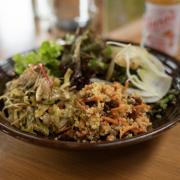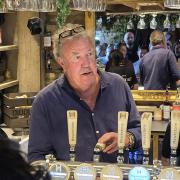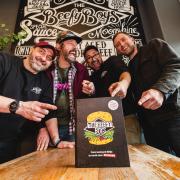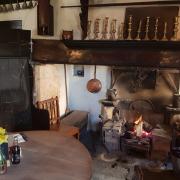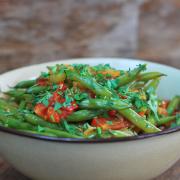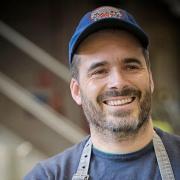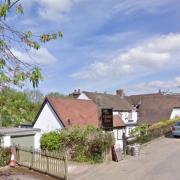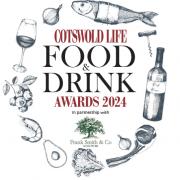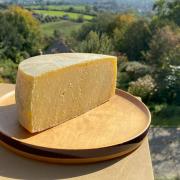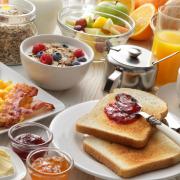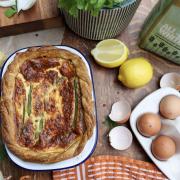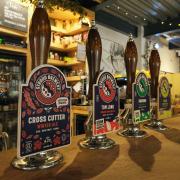Stroud Micro Dairy is part of a growing movement of small scale, regenerative farmers providing incredible produce directly to consumers whilst nurturing the soil beneath our feet. As the only community supported and cooperatively owned dairy in the UK, they are held and influenced by the local community. With a shared vision of a more equitable future, farmers and consumers share the responsibility and direction of the farm’s operation and success. This forges connections between farmers, consumers and the local community that goes deeper than just mere transactions. This is a radically different model. And that isn’t the only difference. At Stroud Micro Dairy, they don’t just graze their cows, they mob-graze them.
If you're unfamiliar with the term, mob-grazing is a rotational grazing system which mimics the natural behaviour of wild herbivores that graze in large herds and move frequently to prevent overgrazing, thus allowing vegetation recovery. Stroud Micro Dairy mimics this ecological pattern by moving their cows twice a day, using electric fencing and intuitive planning, as lions and wolves can be hard to manage…
This practice allows the land to rest and regenerate, feeding the soil and capturing carbon. Unlike woodland (which has many benefits far more important than carbon capture), grasslands retain the carbon sequestered within them. In healthy pastoral land, communities of bacteria, fungi and other micro-organisms work in beautiful symbiosis, creating the largest sink for carbon that we as humans can work with.

With ecological collapse staring us in the face, the demand for a better farming system has never been stronger. In an industry where animals and ecosystems are too-often treated as cogs in an extractive, money making machine, mob-grazing stands as an act of defiance to a culture of destruction and over-consumption by working with nature’s patterns and respecting our animals’ natural self-expression.
Daily moves onto fresh pasture doesn’t only serve to enrich soils, it also keeps cows in rude health and high spirits. The welfare of the herd is top priority. Happy and healthy cows produce incredible milk, packed full of bio-available vitamins, minerals, fantastic bacteria, balanced fats and proteins. Therefore, the dairy only strain and chill their raw milk before offering it to customers.
Pasteurisation was invented to help transport vast quantities of milk across the country to then be stored and sold over a long period of time. Heating up milk for pasteurisation kills certain bacteria that slows spoiling, which is great if you’re wanting to maximise the window of opportunity to sell dairy products. However, pasteurisation also kills lots of the good bacteria in milk, which helps us digest lactose and feed our gut microbiome! As the dairy supplies fresh milk direct to customers, there is no need to interfere with the natural goodness of the milk. It’s also their judgement that raw milk tastes far better too!

The dairy has also adopted a revolutionary new seasonal model; spring calving. Using this model means that the cows have 3 months off from milk production each year. While this shift means there is no milk in the winter months, it is much kinder on the cows and is in keeping with the dairy's mission to only produce milk with the best possible welfare standards. By aligning milk production with peak grass growth in spring, the dairy can minimize environmental impact and maximize nutritional benefits for consumers.
Unlike conventional dairying, where calves are typically separated from their mothers shortly after birth and raised indoors on powdered milk, the calves stay in the herd and nurse with their mothers. Conventional practice stops cows from expressing their natural mothering instincts, severing the sacred bond between mother and child. It also denies calves the ability to develop innate herd behaviours, such as foraging for needed nutrients from different plants and interacting properly in a complex hierarchy, by learning, playing and growing with their peers and elders.

The health of the land directly influences the health of the animals and plants that it sustains. And as plants and animals are what sustain us, their health determines ours. Cows are magical creatures of alchemy, turning grass into flesh and milk. When reared with reverence and respect, pasture-raised meats, and raw milk hold the most bio-available nutrients available to us. All flesh is grass, including ours.
The dairy hopes that by working with the rhythms and needs of the local community, economy and ecology, they will will help the broader shift to a more ethical and resilient food system. In the gentle moo of a cow and the tender nuzzle of a calf, we find the promise that transcends the boundaries of species. A promise of a world that is whole, a world where abundance is the norm and where we humans are not acting as spectators of this dance of life but active participants in it. The dairy are proud to serve not only the land and the animals that graze upon it, but their customers too in order to create a kinder and more beautiful world, one bottle of milk at a time.
stroudmicrodairy.co.uk





